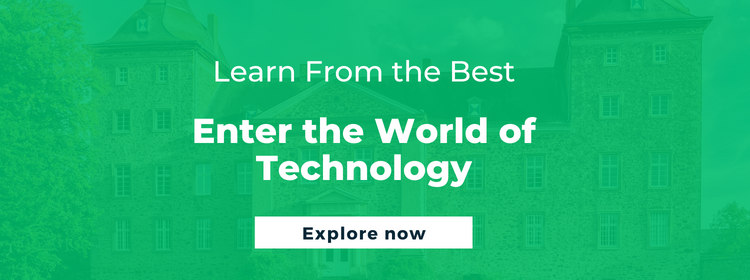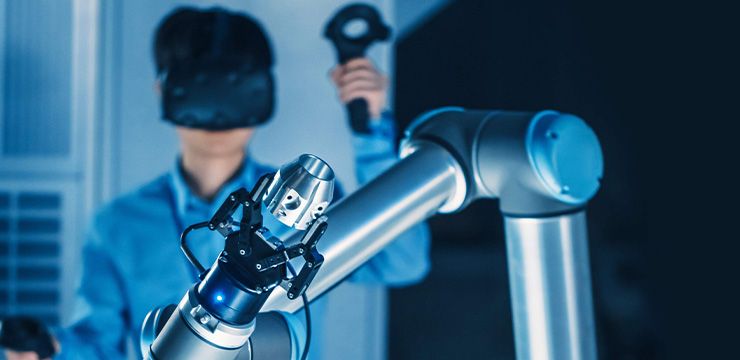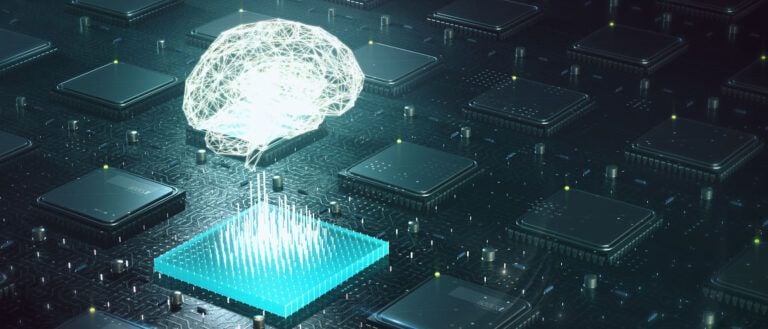Top Cloud Engineer Interview Questions and Answers in 2023

With cloud computing becoming an integral part of the digital world, cloud engineer careers are in more demand than ever before. There are currently 145,000+ job openings for cloud engineers in the U.S. with the national average remuneration standing at $113,260 per year. Hence, knowing how to answer the most frequently asked cloud engineer interview questions will improve the odds of succeeding in an interview for the role.
In this article, we have compiled a list of the most widely encountered interview questions for cloud engineers along with some sample responses to help professionals prepare.
Basic Cloud Engineer Interview Questions
Here are some basic interview questions and responses for entry-level cloud engineer positions.
1. What is Cloud? List Some Different Versions of Cloud.
The term ‘cloud’ refers to a collaboration between networks, hardware, services, storage, and interfaces utilized for provident commuting as a service. It includes three users—end users, cloud service providers, and business management users.
The various cloud versions are ulti-cloud, public cloud, private cloud, and hybrid cloud.
2. What is the Meaning of Function as Service?
Function as a Service (FaaS) provides users a platform where they can develop, administer, and run their cloud applications without having to worry about infrastructure maintenance.
3. What are the Main Components of the Cloud Ecosystem?
The following are the main components of the cloud ecosystem that define how you view cloud architecture: cloud consumers, direct customers, and cloud service providers.
ALSO READ: How to Become a Cloud Engineer: The Ultimate Career Guide
Intermediate Cloud Engineer Interview Questions
Following some knowledge of the basics, let us move on to the intermediate-level cloud engineer interview questions.
1. What is the Meaning of AMI and How is it Implemented?
Amazon machine image or AMI is a replication of the root file system. It offers the details necessary for launching an instance. From a single AMI, multiple instances can share the same configuration.
When it comes to launching instances with various specifications, it is necessary to launch various AMIs as well. In the case of instance-store-backed AMIs, it comprises one or more EBS volume snapshots and a template for the instance’s root volume.
The permissions it launches decides which one of the Amazon Web Services (AWS) accounts can use the AMI for launching instances. Additionally, AMIs need block device mapping for defining the volumes in the correct sequence and connecting them to the instances when they are launched.
2. What are Serverless Components in Cloud Computing?
Serverless components in cloud computing make it possible to develop applications without having to deal with the hassle of managing the infrastructure. As a result, the user is able to write code without logging into the server.
Virtual machines and container management are handled by serverless machines. These parts also control other aspects, such as multithreading and hardware allocation.
3. Sample Cloud Engineer Interview Questions for Mid-Level Executives
- What is the full form of EUCALYPTUS and what does it do in cloud computing?
- How do the cloud and conventional data centers differ?
- What is edge computing?
- What are the various implementations of the cloud computing data center?
- What are the benefits and drawbacks of serverless computing?
- What are some of the cloud-enabling technologies?
- Why microservices are essential for a true cloud system
- What is the cloud usage monitor?
- What functions do APIs provide in cloud services?
- What are the key cloud computing metrics?
What are the Advanced Cloud Engineer Interview Questions?
Moving up the ladder, cloud professionals need to be prepared for an advanced level of questions. Here are some cloud engineer interview questions and responses for jobs aspirants seeking a higher position:

1. Describe the Cloud Computing Architecture.
Cloud computing architecture includes the parts of a cloud model that fit together from an architectural standpoint. The model comprises the cloud consumer, cloud provider, and the cloud auditor.
The cloud service consumer is a representation of the various types of uses of cloud services. Regardless of what the requirements are of a particular constituent, it is crucial to combine the appropriate services that can assist both internal and external users.
Cloud providers should be able to make services easily available in order to accommodate changing company needs This includes the on-premises computing model-based services, infrastructure, middleware, and applications.
Cloud auditors offer oversight by an internal or external group which ensures that the consumer group meets its obligations.
2. Who are the Cloud Service Providers in a Cloud Ecosystem?
Commercial vendors or businesses that develop their own cloud capabilities are known as cloud service providers. The commercial vendors sell their services to cloud consumers. Alternatively, a business may choose to offer internal cloud services to its own partners, workers, and clients as a service or as a profit center. For such environments, cloud service providers also create applications or services.
3. What are Microservices?
Microservices is the process of developing applications using code that is independent of one another and from the underlying platform on which it is being developed. Once developed, each microservice runs a distinct process and interacts via clear, standardized APIs. These services are described as a catalog so that developers may quickly find the appropriate service and comprehend the governance guidelines for usage.
4. Why are Microservices Important for a True Cloud Environment?
The reason why microservices are crucial for a true cloud environment is because of these four turnkey advantages:
a. Each microservice is designed to fulfill a specific and limited purpose, and hence application development becomes simplified. Small development teams can then concentrate on creating the code for some of the precisely specified functions.
b. Code changes become smaller and less complex when compared to a complex integrated application. It will be simpler and quicker to make modifications, whether to patch a bug or upgrade a service to meet new requirements.
c. Scalability, which enables fast deployment of an additional instance of a service or changes that service as needs evolve.
d. Microservices undergo extensive testing and validation. Developers can assume the integrity of new apps without continuous testing when they make use of existing microservices.
5. What is the Cloud Usage Monitor?
The cloud usage monitor is an autonomous lightweight software application that is responsible for gathering and processing the IT resource utilization data.
Cloud usage monitors may exist in various formats depending on the kind of usage metrics these are designed to gather and how the usage data needs to be collected.
The three typical agent-based implementation formats are: monitoring agent, resource agent, and polling agent.
6. How Does the Monitoring Agent Monitor Cloud Usage?
A monitoring agent is a service agent that exists as an intermediate and an event-driven application that resides alongside the current communication channels. It examines and transparently monitors data flows. The monitoring agent is frequently used to gauge message metrics as well as network traffic.
7. How Does the Polling Agent Monitor Cloud Usage?
A polling agent is a processing component that collects information about how cloud services are used by polling IT resources. The polling agent has also been used to promptly track the uptime and downtime of IT resources.
8. Sample Cloud Engineer Interview Questions for Experienced Developers
- What are cloud-native applications?
- How does the resource agent monitor cloud usage?
- What is an API gateway?
- What does ‘containers as a service’ (CaaS) refer to?
- What do you mean by encapsulation in cloud computing?
- What do you mean by rate limiting in cloud computing?
- What are the different data centers deployed for cloud computing?
- What are containerized data centers?
- What are low-density data centers?
- How does resource replication take place in cloud computing?
ALSO READ: What a Good Cloud Engineer’s Salary Package Should be and Why
Learn Online from the Best
While gearing up for a cloud engineer interview, aspirants must remember that top organizations now look for engineers with experience in Linux, OpenStack, Amazon Web Services, Google Compute Engine, and Microsoft Azure. Additionally, having knowledge of DevOps, APIs, and NoSQL improves the chances of landing your dream job. Explore Emeritus’ wide range of online technology courses to become a full-stack developer and stay at the top of your field!
Write to us at content@emeritus.org
















